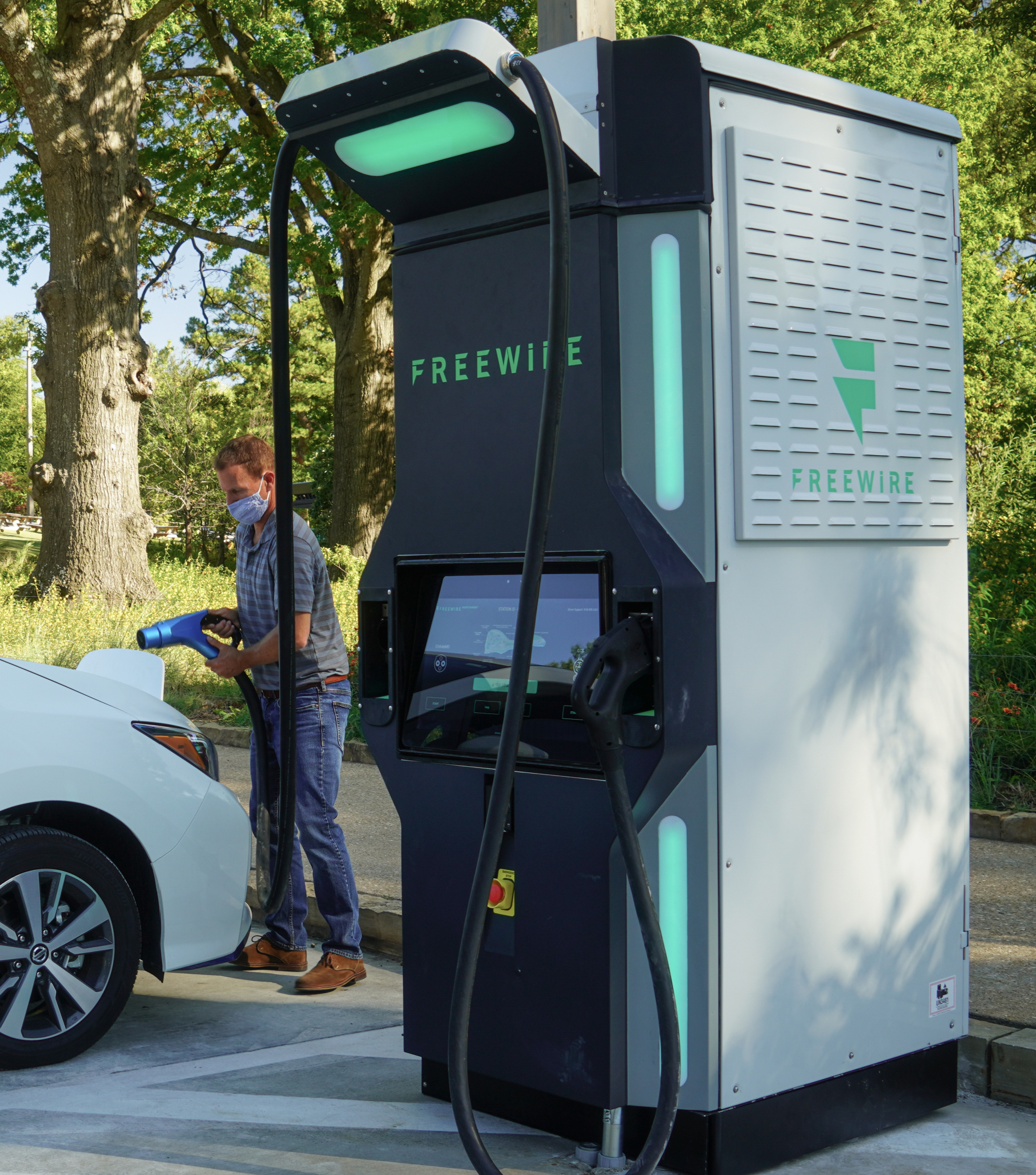Taking Charge of an Electrifying Opportunity
2 Min Watch By MRM Staff
By 2030, the International Energy Agency projects there will be 130 million EVs on American roads. What does this have to do with restaurants? All those cars will require millions of plugs and there are approximately just 100,000 in current use meaning an opportunity for restaurant owners interested in hosting charging stations.
Modern Restaurant Management (MRM) magazine interviewed Arcady Sosinov, Co-Founder and CEO of FreeWire, an electric vehicle charging and power startup that offers an ultrafast charger, Boost Charger. The company has plans to partner with QSRs to provide charging stations at their parking lots and garages and recently announced a $50 million Series C funding round to accelerate international market expansion of Boost Charger and expand production capacity to meet customer demand.
Prior to launching FreeWire, Sosinov spent seven years in the finance industry, most recently at investment firm GMO, where he focused on emerging markets, creating a best-of-breed financial database analytics suite that is now used throughout the firm to trade more than $130 billion in assets.
Why should restaurants have EV charging stations on their radar?
EVs are coming. For restaurants, there’s an opportunity to provide a premium new service to attract and retain customers. Additionally, restaurants who adopt EV charging stations can expect new revenue streams directly from the charging, increased traffic and increased dwell time.
EVs can also boost a restaurant’s brand awareness, committing the company to social and environmental goals. There’s also a land grab happening for EV charging stations. More restaurants and retail locations are beginning to offer charging as a service to attract the increasing share of EV drivers.
What is the process for restaurants wanting to implement charging stations to a restaurant space?
This really depends on the type of charger a restaurant wants to implement. Slow chargers, or Level 2, require low power input and quick installation, but also deliver a slow charge to the vehicle over hours. Fast chargers (DCFC) that charge vehicles in 30 minutes can be a premium offering but can require extensive permitting, construction and distribution grid upgrades.
Battery-integrated fast chargers, such as FreeWire’s Boost Charger, require only a low power input while delivering high power to the vehicle from the battery. This can substantially reduce the permitting, construction and distribution grid upgrades necessary, allowing easy deployment of chargers in hours. Restaurants should work with an electric vehicle service equipment (EVSE) provider to assess the power requirements, apply for incentives and install equipment.

What are the financial incentives in place?
There is strong momentum in the public sector to encourage electric vehicle adoption. Local, state and federal incentives are readily available, with new incentives becoming available every week. (EVSE) providers can help restaurants secure funding to offset or fully fund the upfront cost of chargers.
What competitive advantage(s) would this give to a restaurant?
Restaurants will be able to brand their own charging stations, and encourage return visits with loyalty programs on both car charging and menu items. In Sweden, for example, dozens of McDonald’s restaurants have added charging stations. They perform double duty, drawing in new consumers and associating the brand with clean energy.
Direct current fast-chargers (DCFCs) in particular are viewed as both an essential and premium service, so restaurants not only have an opportunity to distinguish themselves through charging alone, but also can provide the fastest charging in their area to their customers.
What are the benefits to guests?
Electric vehicle customers no longer have to go to the gas station, but can quickly refuel their cars as a preferable location while getting a meal. Fast charging stations offer a substantial advantage over slow charging. Slow chargers require hours of charging while fast chargers and power an EV fully in 30 minutes. Restaurants should be looking to provide fast charging as a future-proof charging solution.
